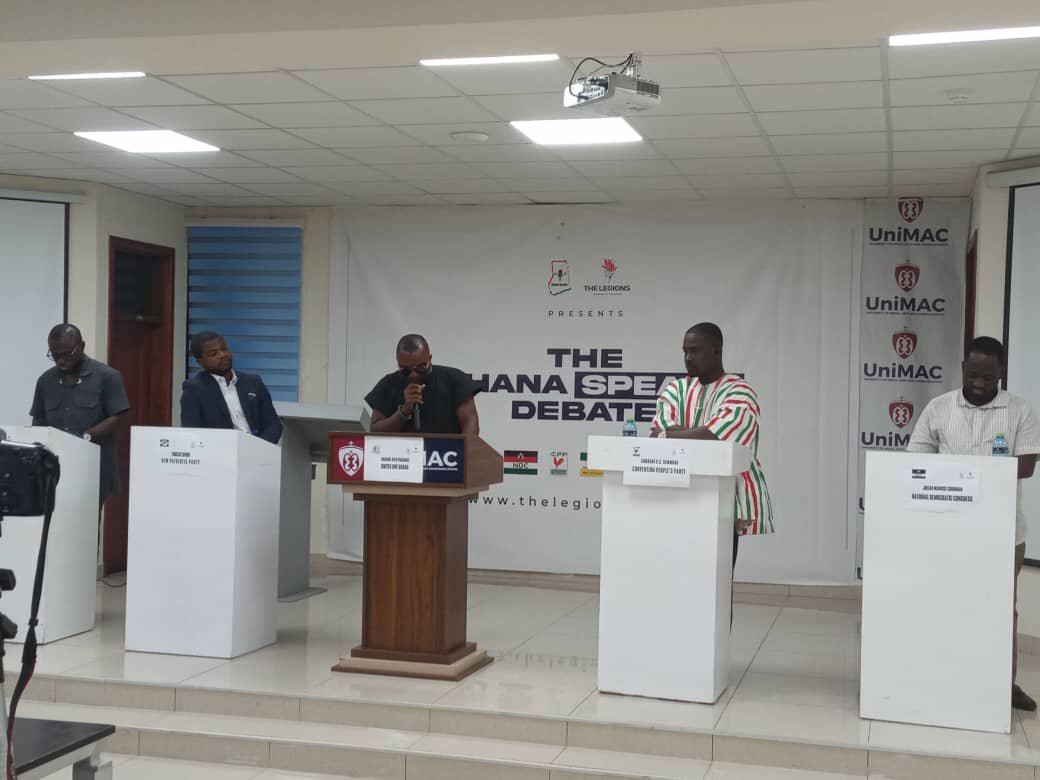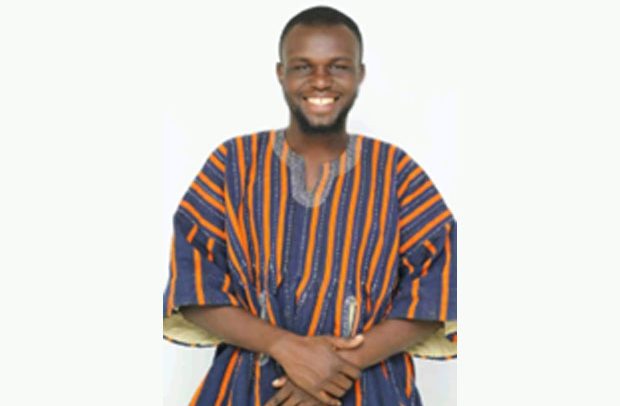
By Amos SAFO
I regularly visit a mechanic shop at Odorna, a suburb of Adabraka in Accra to fix my rickety Rav4. I made a friend at the mechanic shop, who repairs and services all types of electric generators as a source of livelihood.
Between 2012 and 2016 my friend made a lot of money due to an increase in the purchase and use of generators. That period marked a traumatic era of “dumsor”, which compelled individuals and industries to acquire generators for personal and industrial use. That era also marked a steady decline in manufacturing, construction and agro-processing which require a lot of energy.
It was at that point that several industries reduced their production capacities, laid of several staff, while others relocated to neighbouring countries like La Core d’Ivoire which had a competitive advantage in energy production. In addition, many small-scale businesses such as welders, fitters, mechanics, hairdressers and barbers, tailors, bakers, agro-processors among others suffered incalculable losses of their investments and livelihoods.
Fixing the crisis
The energy situation became stable in 2017 when power changed from then ruling National Democratic Congress (NDC) to opposition New Patriotic Party (NPP). The NPP had promised to halt the energy crisis and made significant political gain from the crisis popularly called “dumsor.” Small wonder that the campaign to fix the crisis resulted in a massive victory for the NPP, with an unprecedented one million vote margin.
Starting from mid-2017 to 2018, Ghana’s energy sector regained momentum amid the renegotiation of the several energy agreements that had shackled the economy in huge and unstainable debts. The restoration of energy between 2017 and 2022 resuscitated the economy, as both small and large businesses started full-scale production. Undoubtedly, reliable energy is a critical component of any country’s economic development. Energy is widely utilized in agricultural, industrial, manufacturing and construction.
However, the resuscitation of the energy sector and its positive impact on the productive sector affected a section of the population, such as generator sellers and repairers like my friend at Odorna. These people’s livelihoods are hinged on the systematic malfunctioning of the energy sector. In fact, my friend at Odorna has since 2018 not recovered from the revival of the sector. During the period until this year, the generator repairer persistently complained about economic hardships the current government has imposed on the economy. He had lost considerable weight because of lack of jobs, thanks to stable electricity over the years. I guess the same fate applies to generator sellers who made huge profits during the era of “dumsor.” A few months ago, I had cause to advice my generator repairer friend that he should consider learning another skill like car repairing for sustenance. He did not welcome the idea, insisting that he learnt generator repairing, so there must be conditions for him to utilize his skills and endowment. This is what is confronting many youths, who refuse to have a mindset change to reflect current changes in the economy.
For instance, sometime ago, I encountered a young man selling wallets, who had complained about a decline in sales. Perhaps, he was unmindful of the fact that the ongoing economic difficulties made his business unsustainable. Another was selling susu boxes without regard to the current financial difficulties that make it difficult for people to save even coins. No one needed to tell these young men to diversify their businesses to reflect current economic trends.
Turn of events
A few days ago, I met my friend at Odorna, this time with a smile, ostensibly because he has started receiving jobs to repair and service generators. The good news to him is that “dum sor” has returned and with it the revival of his sources of livelihood. This is where Ghana faces a dilemma. Do we allow the economy to be plunged into an energy crisis for generator repairers and sellers to survive; or do we provide lasting solutions to the energy crisis for the benefit of the larger economy? Personally, I think that we need a government that will restore vibrancy to the energy sector to boost the productive sector, if it means individuals losing their livelihoods as repairers and traders.
The Ghanaian economy, like other economies thrive on energy for industrialisation. The industrial sector utilizes more energy than any other end-use industry, accounting for around 54% of total delivered energy. It is therefore not prudent to run down the energy sector as happened between 2014 and 2016 for the sake of generator repairers and traders. Ultimately, it is the productive sectors of the economy that contribute more to Gross Domestic Product (GDP) of Ghana than the service sectors. People like my repairer friend hardly pay any taxes and hence make very little, if any, contribution to Gross National Product (GNP) of the economy.
“Dumsor” and 2024 elections
After nearly seven years of stable electricity, Ghana is now faced with what bears the semblance of “dumsor” between 2014 and 2016. As of now, it is not clear whether the erratic power supply can qualify as “dumsor” on the scale of 2014 and 2016. While the opposition has been quick to call it “dumsor”, the government is still struggling with the appropriate name for the current occurrences. When the disruption of power started in February, I put on a brave face in explaining to neighbours that there were some challenges the Electricity Company of Ghana was facing, which could be fixed within a short period of time. However, between February and April, the power supply is becoming increasingly unpredictable each day. I now sleep in darkness every other day than initially anticipated. Thus, my initial optimism that the situation was temporary is becoming untenable. My only prayer is that the economy does not return to the era of 2014-2016 when “dumsor” became part of our national psyche.
Policy options
Just as in 2016 when the NPP made political capital out of the energy crisis, NDC is hoping to make electoral gains out of the current situation. But does the NDC offer any credible policy alternatives? The answer to this question is difficult to comprehend, given that those who created the original “dumsor” are those now crying from the rooftop. Realistically, I do not think the NDC is offering any better policy alternatives to fix the current “dumsor” when they assume office. As the originators of the problem, I expect farsighted solutions from them than merely shouting on radio and television. This is nothing short of seeking an equalization of policy failure which offer little, if any long term solutions. If indeed we want to find a lasting solution to the current energy crisis, there should be a bi-partisan approach, rather than seeking political gain. Ultimately, it is the resilience and competitiveness of our economy that should be the overarching goal of any policy interventions and not which personality, or political party will gain political power.
Public good will
Since the inception of democratic governance in 1992, the NPP has enjoyed more public good will than the NDC. NPP tends to win more public sympathy in terms of votes, anytime there is need for political change. This was the case in 2000 and 2016. The NPP has however failed to harness public good will to retain power when it becomes critical. This was the case in 2008, a trend which could be repeated unless the party and its flagbearer are able to translate the public good will to decisive votes on December 7, 2024. Thus, merely campaigning on “Breaking the eight” is not enough. The party must rebrand itself and present a consistent policy communication that gives deeper meaning to its current flagship programmes. To be honest, the ongoing disruptions in electricity supplies is undermining whatever the impact the government achieved or provided to Ghanaians the last seven years. If the current “dumsor” or whatever it is called is not fixed within the next few weeks, it will spell doom for Dr. Bawumia and the NPP’s quest to “Break the eight.” Ghanaians are already used to changing government’s every eight years and irrespective of any government’s achievements the electorate have hold the keys as agents of change and kingmakers. This is what the NDC and John Mahama are hoping to capitalize on. So, it will take something dramatic and an aggressive branding and marketing campaign to persuade a chunk of the electorate to join the bandwagon to break the jinx of eight. On the ground, it does not appear as easy as the NPP and its flagbearer assume.
Mindset change
If the NPP thinks many Ghanaians will simply vote for their candidate, Dr. Bawumia because of the free Senior Secondary policy (SHS) they need to have a mindset change. I live in a community at Anyaa, where two of my next door nieghbours have had four of their children benefit from the free SHS intervention. In fact, without the policy their children would probably not have gotten admissions to Achimota and Mfantsipim, let alone going to secondary school; yet the heads of these families hardly say anything good about the government. As a matter of fact, they started campaigning against the government two years ago and are in a haste to send the NPP to the opposition.
Practically, not many people appreciate the impact of Covid 19 and the global economic crunch on the Ghanaian economy, let alone empathizing with the government and its presidential candidate. This buttresses the point that it is not all Ghanaians who appreciate and vote because of policy interventions. President Kufour had some of the most innovative and inclusive social interventions like “free maternal care”, “National Health Insurance”, “Free compulsory basic education”, “Capitation grant”, “school feeding programme” and free bus ride for school children”, yet the NPP’s candidate, Nana Addo Danquah Akufo-Addo lost the 2008 presidential polls by the narrowest of margins. In a nutshell, many voters, irrespective of education and social status still vote on party and ethnic lines.
Running headache
What happened in 2008 should be a guidepost to Dr. Mahamudu Bawumia and his campaign team with eight months to the crucial polls. On that score, the current energy crisis has become a nagging boil, which must be lanced immediately if the NPP is to regain its positive rating in the minds of the electorate.
It appears that the consideration of Dr. Matthew Opoku Prempeh as a running mate has diverted his attention from the critical task of fixing the energy crisis. I therefore urge Dr. Bawumia to name his running mate as soon as possible to put all the speculations to rest. If indeed he is the choice of a running mate the announcement should be made immediately, and a replacement found for the energy ministry as a matter of priority.
If another candidate is suitable, that should also be communicated immediately, so Dr. Prempeh can focus on the task of addressing the energy crisis. As a Minister of Education, Dr. Prempeh proved that he is a result-driven man, and even in the early stages as Energy Minister he brought discipline to the sector that drives the economy. However, when the speculation about his running mate candidacy started, the energy sector began to lose steam. In sum, Ghanaians will punish the NPP for the current energy crisis, irrespective of the free SHS and other social interventions.
The post Development Discourse: The political and economic ramifications of “dumsor” appeared first on The Business & Financial Times.
Read Full Story


















Facebook
Twitter
Pinterest
Instagram
Google+
YouTube
LinkedIn
RSS